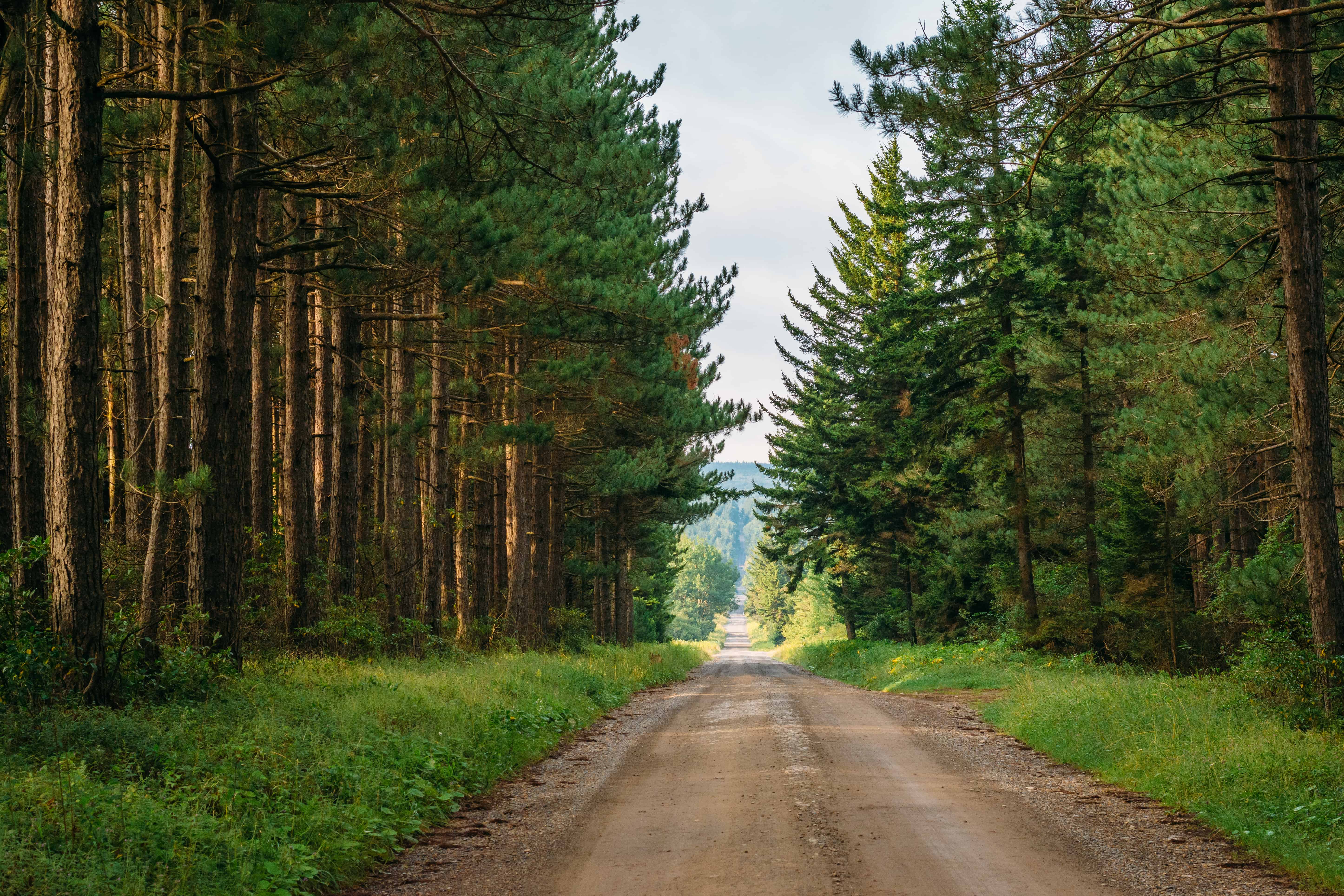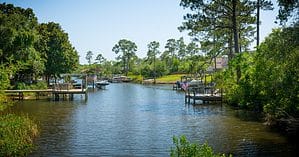More than 250 thousand people in the USA are living their lives off of the grid, but is it illegal to live off-grid in the United States? It depends…living off-grid is not as simple as moving to the middle of nowhere. We’ll take a closer look at the ins and outs of an off-grid lifestyle.
What Is Off-Grid Living?
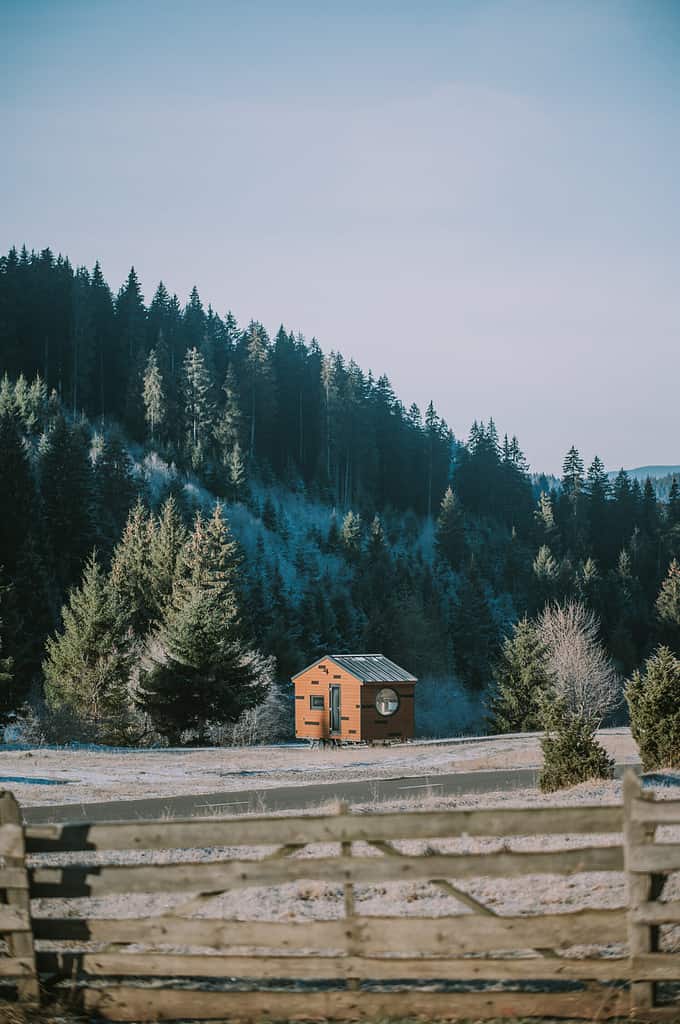
Living off-grid means there is no access to public electricity and water.
©Eco Tiny House/Shutterstock.com
Off-grid living is a lifestyle that involves sourcing all necessities independently. Electricity, shelter, water, and food are not procured through an established framework developed for mass consumption. Established frameworks include but aren’t limited to power grids, sewage lines, municipal water systems, and grocery stores.
Is It Illegal to Live Off Grid in the United States?
It is technically not illegal to live off-grid in any state in the United States. However, certain regulations in different parts of the nation make it almost impossible to live off-grid. There are no set rules about off-grid living for the country as a whole, and dwelling requirements can vary wildly between communities.
Having the Proper Permits Is Important for Off Grid Living
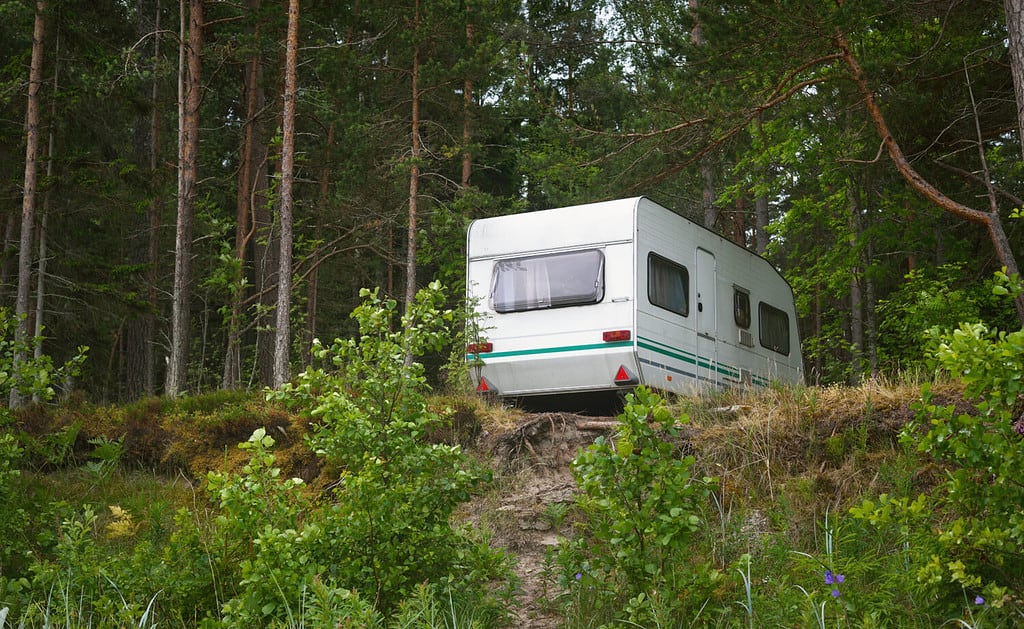
It may be illegal to live out of an RV on your property while you build an off-grid shelter.
©Aastels/Shutterstock.com
Most places will require that you secure building permits for any buildings you’re planning to construct on your property. In more strict locales, it’s not even possible to live out of a parked RV while you build on land you own.
Permits are usually required for septic tanks and wells. Since sewage is a health hazard, most states demand that professionals install septic systems according to strict specifications.
Water also needs to be clean enough for living. Most places require professional well diggers to come to your property if you’re looking to build a well.
If you do not go through the proper steps in your area and build without permits and inspections, you will most likely be subject to fines. At worst, you may have to demolish your buildings and tear up any septic or electrical systems you have installed. Make sure you’ve thoroughly researched all laws in your area before committing time and money to any major project.
Disconnecting a Property From the Grid May Be Illegal
In most places, it is illegal to disconnect a property from an electrical grid if it’s already connected. However, it is possible to install solar panels that contribute to the power system so consumption remains nil. In some spots, wind turbines can also be installed to contribute to the existing electrical grid to keep outside power consumption at a minimum.
Independent Food Production is Monitored Closely

Storing your grain may be problematic if you stockpile too much.
©iStock.com/Belyaevskiy
Most people who live off the grid will want to produce some, if not all, of their food supply. While growing fruits and vegetables is almost always legal, giving them away or selling them can be problematic and may require permits.
Selling processed foods, like pickles and jellies, will require licensed professional kitchens to maintain food safety requirements. It can also be illegal to store excess grain. If too much of any grain, like wheat, barley, corn, or rice, is on your property, you may need to conform to laws and the permitting required for commercial farms.
Producing meat, eggs, and dairy can also be problematic. Most of the properties within city limits or near other homes will fall under laws that make most animal husbandry illegal. It’s important to make sure your piece of property is zoned for the kind of agriculture you want on your land to avoid hefty fines or the destruction of animals and crops.
Why Choose to Live Off Grid?
Living off the grid can be a positive experience for those with the chops to survive. It takes a profound level of problem-solving skills to live independently without outside help. Anything that goes wrong must be fixed by you as you’re the owner, and no one else is obligated to help you.
People choose to live off-grid because they want full autonomy over their resources. Publicly supplied utilities like electricity and water are controlled by local governments. For some, this level of oversight and taxation is not something they want to feed into daily
Utility bills are almost nonexistent. It’s even possible to provide an off-grid home with ample clean electricity via solar panels and batteries. While solar panels are a hefty investment, they make up for their cost in a short amount of time.
Others choose to live off-grid so they can pursue a more natural lifestyle since off-grid living is more environmentally friendly than living in a city. Living off of the grid provides individuals the chance to reduce their carbon footprint.
Why is Rain Catchment Sometimes Illegal?
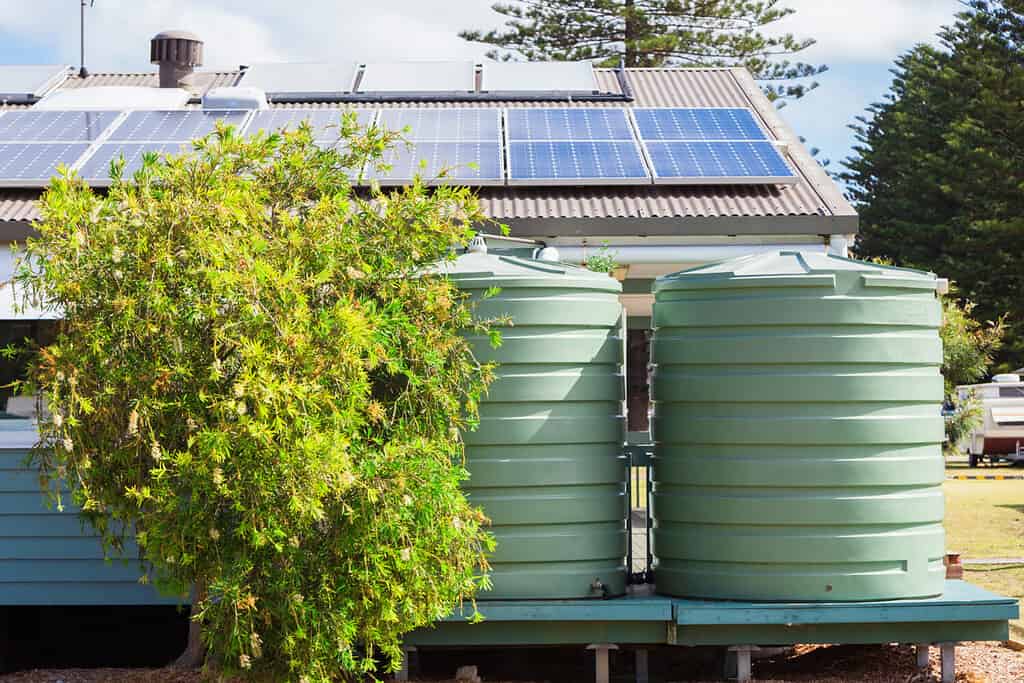
Collecting rainwater on your property may be illegal.
©zstock/Shutterstock.com
In some places, rain catchment is illegal. That’s because the landowner technically doesn’t own the water rights to the rain that falls on their property.
Water that precipitates from the sky eventually flows into streams, rivers, and ultimately reservoirs. The people or governments that control these waterways may own the water that lands on your property. That’s because it is destined to end up in their water system, and they are entitled to a certain water flow in those waterways.
Depending on where the water table is, if rain catchment isn’t available, it may be impossible to live completely off the grid as you’ll have to buy water. In these situations, large tanks on the property will need to be filled periodically. Professional distributors can be hired to swing through every so often to top off these tanks, or you can travel into town and haul fresh water yourself.
What Is a Compost Toilet and Why Are They Sometimes Regulated?
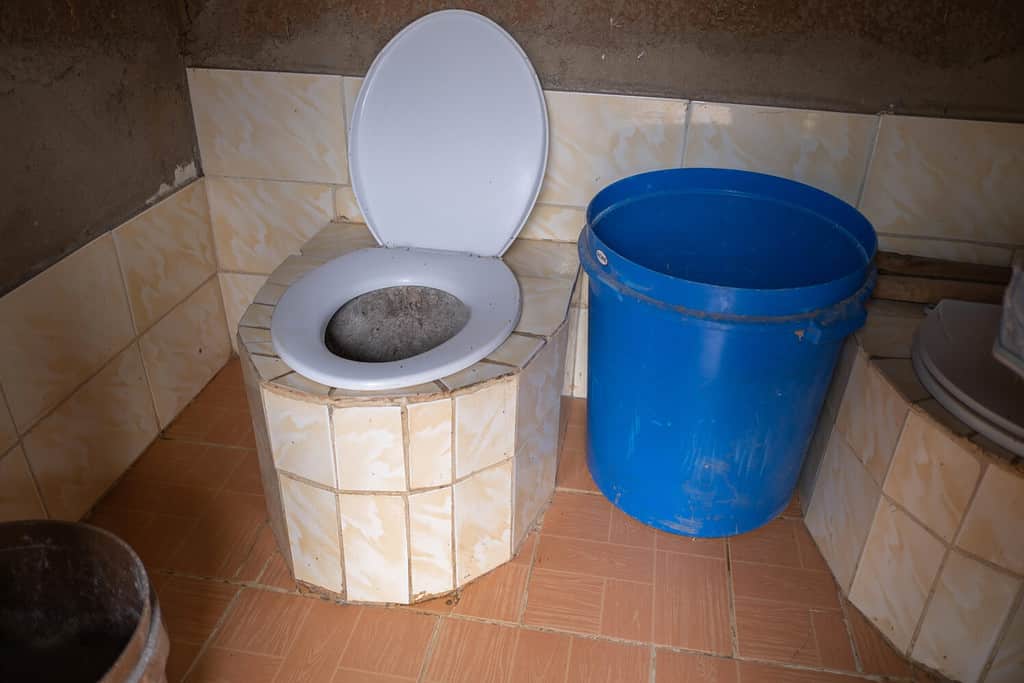
Compost toilets turn human excrement into a dirt-like substance without flushing.
©africa924/Shutterstock.com
A composting toilet works similarly to a vegetable compost pile kept in yards. Bacteria breaks down the waste deposited in the toilet until it becomes a dirt-like consistency. This is then removed, and it must be buried or handled by a professional who disposes of it off-site.
Composting toilets are a viable option worth considering for an off-grid lifestyle. That’s because they don’t use water to flush which saves a lot of gallons of water.
The major downside to a composting toilet is that if anything is off balance, the waste removal process can be disgusting. These toilets will also stink up the space they’re in if they aren’t operating correctly. Because the risks for contamination are so high, a lot of places ban them so they don’t have to spend resources on their regulation.
The dirt-like creation at the end of the composting cycle is not usable in most garden spaces as the risk of illness via contamination is very high. Because of this, most areas require a setup similar to a septic tank to keep the waste contained. This can be ruinously expensive to install if it’s not already in place when the property is purchased.
Thank you for reading! Have some feedback for us? Contact the AZ Animals editorial team.

